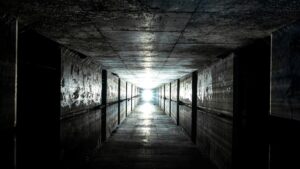Uvre encounters substantial amounts of green energy metals uranium and vanadium at East Canyon

High-grade uranium and vanadium have been returned from rock chip samples at Uvre’s East Canyon project in Utah. Pic via Getty Images
- New laboratory rock chip sample results returned up to 1.64% U3O8 and 6.72% V2O5
- These samples were returned from either undrilled or recently identified new targets
- Further follow up exploration work is being planned for the upcoming 2024 field season
Special Report: A geological mapping and sampling program has returned up to 1.64% U3O8 and 6.72% V2O5 from eight undrilled prospects at Uvre’s East Canyon project in Utah.
Uvre’s (ASX:UVA) foundational asset is the East Canyon project in southeastern Utah, in close proximity to established mining operations and infrastructure within the extended Uravan Belt, a well-known uranium and vanadium district.
The Uravan belt and surrounding Salt Wash ore-producing districts of the Colorado Plateau, which hosts UVA’s claims, has been an important source of uranium and vanadium in the US for more than 100 years.
Historically, the region has produced more than 85 million pounds of uranium at an average grade of more than 0.13% U₃O₈ and more than 440 million pounds of vanadium at an average grade of 1.25% V₂O₅.The district hosts several uranium-vanadium operations as well as the only fully licensed uranium-vanadium mill in the US – Energy Fuels’ White Mesa Mill, about 50km from East Canyon.
12 targets to be tested and ranked shortly
Fieldwork in the form of rock chip sampling across eight undrilled prospects has returned high-grade uranium (1.64% U3O8) and vanadium (6.72% V2O5) at surface.
UVA says there are now 12 prospects at the project including Stateline, Bonanza East, Bonanza, Bonanza West, None Such East, None Such, None Such West, Big Lead, Balmia, Sue Mac, Loya Ray Central 1, Loya Ray and Unknown.
“This equates to >17km of stratigraphic strike length on the East Canyon claims area in which the prospects occur within a relatively consistent (105m vertical) elevation range,” UVA managing director Peter Woods says.
Rock chip results from 5km trend
Woods says the high-grade rock chip sample results returned from the 5km trend at Stateline demonstrate the trends prospectivity.
“The 2.4km Loya Ray trend remains prospective as the largest surface uranium anomaly in which small scale historical open pit mining also took place with surface rock chip sample EC19 returning 0.30% U3O8 and 2.59% V2O5,” he says.
“We are eager to get the exploration team back out in the field to carry out further work which will assist in ranking and prioritising drill targets for 2024.”
Work will be conducted when the field season opens (expected towards end of quarter) including detailed facies assessment of the 2.4km Loya Ray and the northern 5km Trend to identify the best mineralized horizon to consider drill testing in 2024.
This will also include structural and stratigraphic modelling of the >17km prospective Salt Wash Member stratigraphy.
This article was developed in collaboration with Uvre, a Stockhead advertiser at the time of publishing.
This article does not constitute financial product advice. You should consider obtaining independent advice before making any financial decisions.
Related Topics

UNLOCK INSIGHTS
Discover the untold stories of emerging ASX stocks.
Daily news and expert analysis, it's free to subscribe.
By proceeding, you confirm you understand that we handle personal information in accordance with our Privacy Policy.








